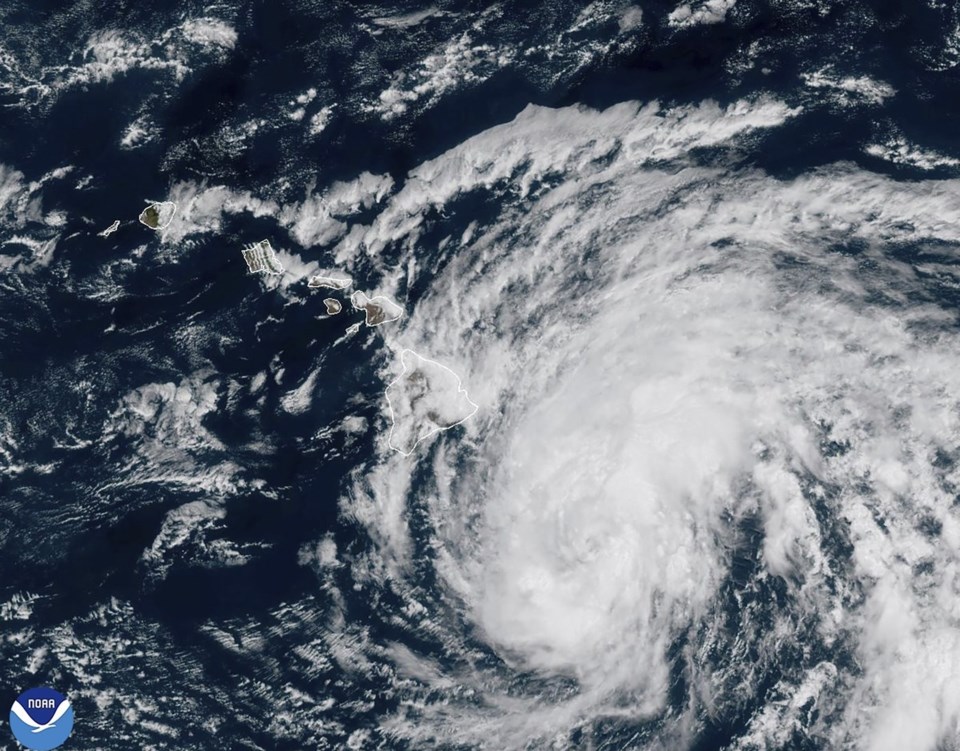HONOLULU (AP) — Hurricane Hone passed just south of Hawaii early Sunday, dumping enough rain for the National Weather Service to call off its red flag warnings that strong winds could cause wildfires on the drier sides of islands in the archipelago.
Hone (pronounced hoe-NEH) had top winds of 80 mph (130 kph), according to a 2 a.m. advisory from the Central Pacific Hurricane Center in Honolulu, and was moving west near the southernmost point of the Big Island, close enough to sweep the coast with tropical storm force winds and to drop up to a foot (30 centimeters) or more of rain on the windward and southeast-facing slopes of the Big Island, with locally higher amounts possible.
Hurricane Gilma, meanwhile, increased to a Category 4 hurricane Saturday night, but it was still about 1,480 miles (2,380 kilometers) east of Hilo and forecast to weaken into a depression before it reaches Hawaii.
“Hone’s main threats to the state continue to be the potential for heavy rainfall leading to flooding, damaging winds and large surf along east-facing shores,” the weather service advised early Sunday.
Some Big Island beach parks were closed due to dangerously high surf and officials were preparing to open shelters if needed, Big Island Mayor Mitch Roth said.
Hone, whose name is Hawaiian for “sweet and soft,” poked at memories still fresh of last year's deadly blazes on Maui, which were fueled by hurricane-force winds. Red flag alerts are issued when warm temperatures, very low humidity and stronger winds combine to raise fire dangers. Most of the archipelago is already abnormally dry or in drought, according to the U.S. Drought Monitor.
“They gotta take this thing serious,” said Calvin Endo, a Waianae Coast neighborhood board member who lives in Makaha, a leeward Oahu neighborhood prone to wildfires.
The Aug. 8, 2023, blaze that torched the historic town of Lahaina was the deadliest U.S. wildfire in more than a century, with 102 dead. Dry, overgrown grasses and drought helped spread the fire.
For years, Endo has worried about dry brush on private property behind his home. He's taken matters into his own hands by clearing the brush himself, but he's concerned about nearby homes abutting overgrown vegetation.
“All you need is fire and wind and we’ll have another Lahaina,” Endo said Saturday. “I notice the wind started to kick up already."
The cause of the Lahaina blaze is still under investigation, but it’s possible it was ignited by bare electrical wire and leaning power poles toppled by the strong winds. The state’s two power companies, Hawaiian Electric and the Kauai Island Utility Cooperative, were prepared to shut off power if necessary to reduce the chance that live, damaged power lines could start fires, but they later said the safety measures would not be necessary as Hone blew past the islands.
Roth said a small blaze that started Friday night in Waikoloa, on the dry side of the Big Island, was brought under control without injuries or damage.
Audrey Mcavoy And Jennifer Sinco Kelleher, The Associated Press




